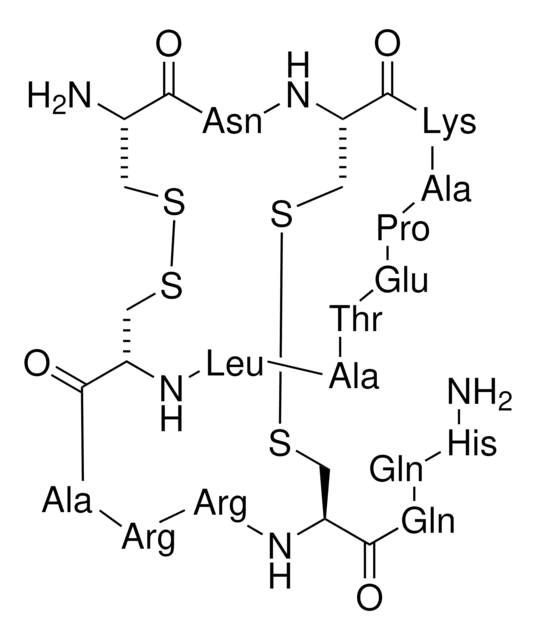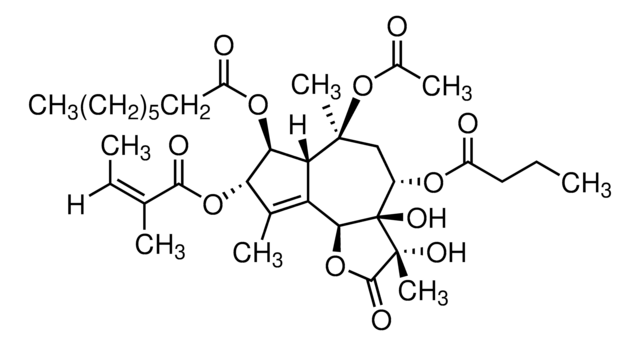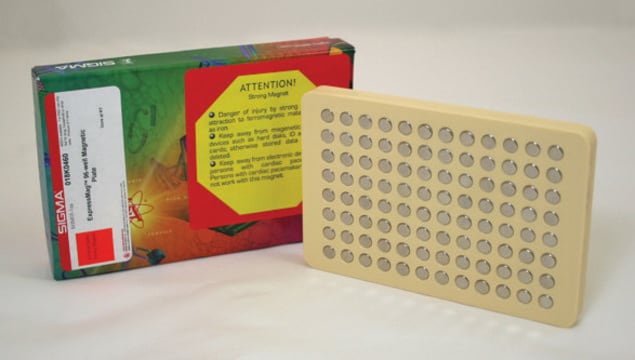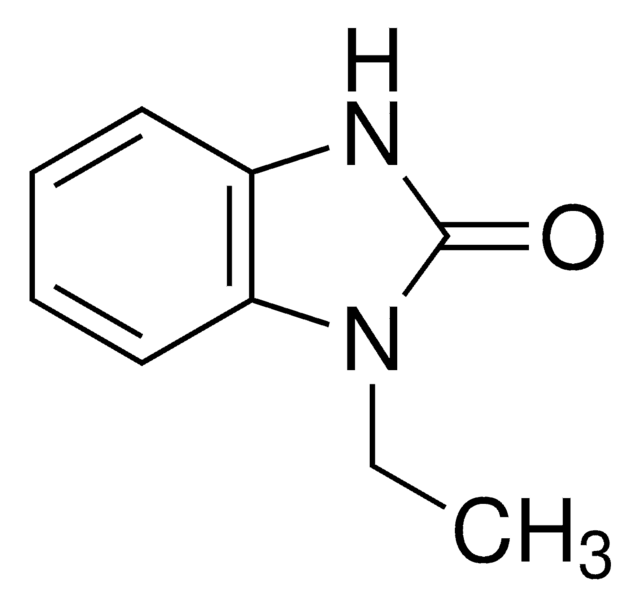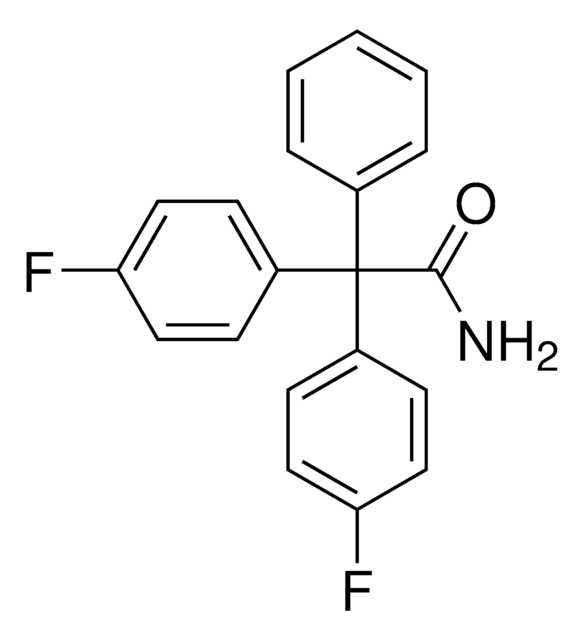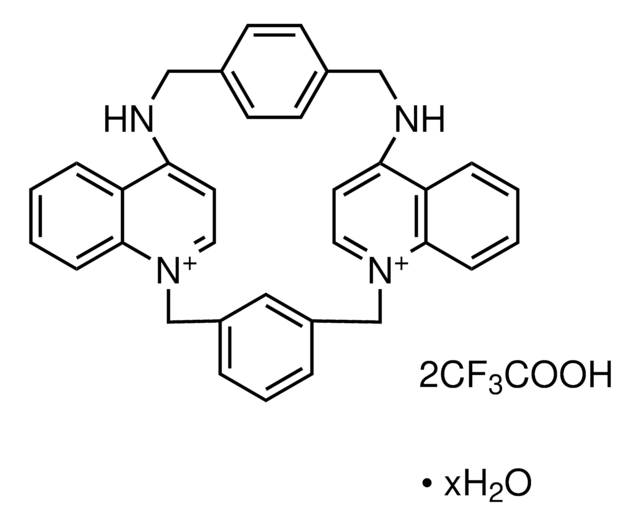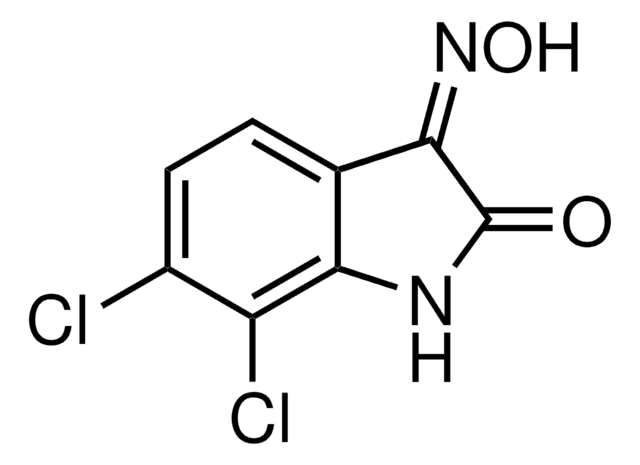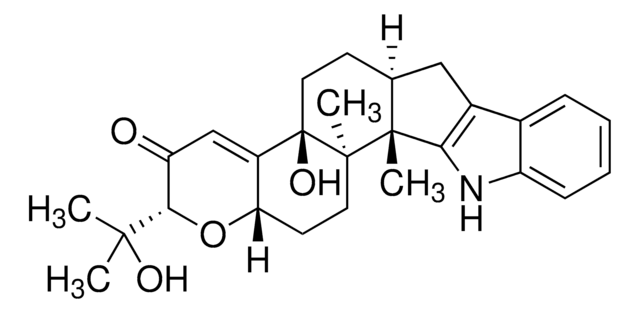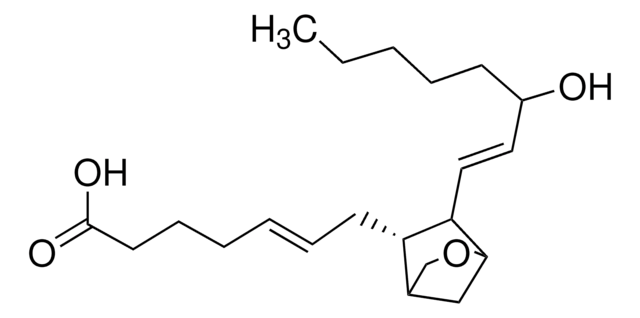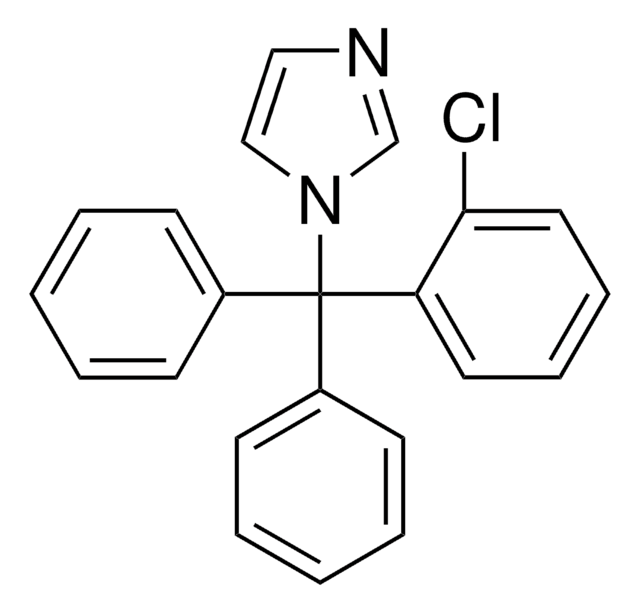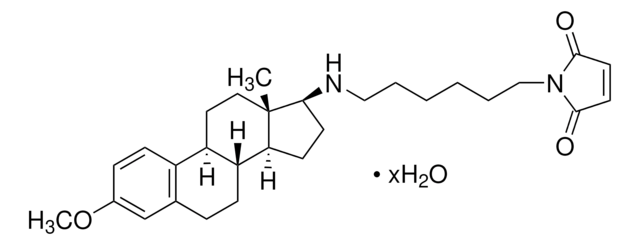T6700
TRAM-34
≥98% (HPLC), solid
Synonym(s):
1-[(2-Chlorophenyl)diphenylmethyl]-1H-pyrazole
About This Item
Recommended Products
Quality Level
Assay
≥98% (HPLC)
form
solid
color
off-white
solubility
DMSO: 2 mg/mL
H2O: insoluble
storage temp.
2-8°C
SMILES string
Clc1ccccc1C(c2ccccc2)(c3ccccc3)n4cccn4
InChI
1S/C22H17ClN2/c23-21-15-8-7-14-20(21)22(25-17-9-16-24-25,18-10-3-1-4-11-18)19-12-5-2-6-13-19/h1-17H
InChI key
KBFUQFVFYYBHBT-UHFFFAOYSA-N
Application
Biochem/physiol Actions
Features and Benefits
Preparation Note
Signal Word
Warning
Hazard Statements
Precautionary Statements
Hazard Classifications
Acute Tox. 4 Oral - Aquatic Chronic 4
Storage Class Code
11 - Combustible Solids
WGK
WGK 3
Flash Point(F)
Not applicable
Flash Point(C)
Not applicable
Personal Protective Equipment
Certificates of Analysis (COA)
Search for Certificates of Analysis (COA) by entering the products Lot/Batch Number. Lot and Batch Numbers can be found on a product’s label following the words ‘Lot’ or ‘Batch’.
Already Own This Product?
Find documentation for the products that you have recently purchased in the Document Library.
Customers Also Viewed
Our team of scientists has experience in all areas of research including Life Science, Material Science, Chemical Synthesis, Chromatography, Analytical and many others.
Contact Technical Service